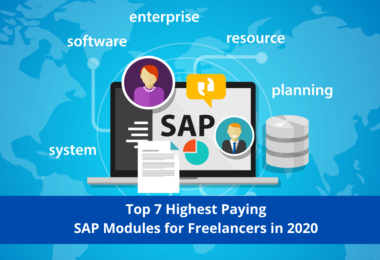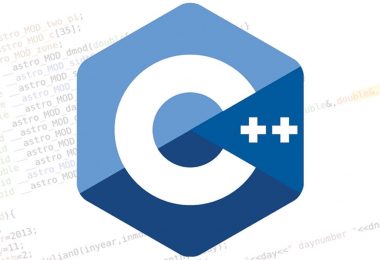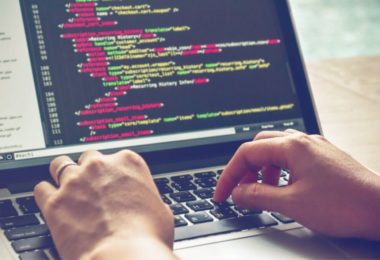
Data scientists are one of the highest paid professionals at present. Over the past 5 years, interest in this field has significantly increased. Unfortunately there’s a huge gap between the demand and supply of skilled professionals. So, if you are looking for a career change, you can choose to be a freelance data scientist, even without having any previous experience and data scientist qualification.
We have compiled a list of technical and non-technical skills that you would require to compete and make yourself a strong data scientist freelance consultant.
Freelance data scientists are well paid, but you have to earn those pay checks. An expert data scientist requires a range of hard skills and soft skills. You not only have to execute complex database applications by knowing which data science methods to apply, but also comfortably interface data users and producers throughout your company.
8 Important Data Science Skills You Must Have
Data Science Education
If you want to be qualified as a data scientist,you should at least have a Master’s degree. Although, there are exceptional cases, a strong educational background in most common fields is usually required to develop fundamental knowledge about data science.
The common field of study include Mathematics and Statistics. It would be an added bonus if your former education involves Engineering and Computer Science.
1. Programming Skills
Database querying language, like SQL and statistical programming languages, like R, Python, Java, Perl or C++/Care must for getting hired in this profession.
Irrespective of the company or role you are interviewing for, it’s very likely that you’ll be expected to know to use the tools and products of the industry or trade. Python is the most common coding language which is typically required in Data Science, along with writing and executing complex SQL queries.
2. Machine Learning Skills
During your initial freelance career as a data scientist, you may have to work full time with corporates and companies to learn the intricacies of the subject.
So while working, you will be associated with companies, such as Netflix, UBER, Google Maps etc., having huge amount of data or having products that are data driven – it will be expected from you to be familiar with machine learning methods.
However, most of the machine languages can be implemented with R or Python libraries, so it is not necessary for you to be an expert in the algorithm. What’s more important is to know the basics and really comprehend its appropriate usages.
3. Statistics
Statistics is extremely vital in data science as you will be expected to be aware of statistical tests, maximum likelihood estimators, distributions etc. Like in the case of machine learning methods, you should have adequate intellect to understand the valid approaches of different techniques.
Although statistics is one of the basics job descriptions, it becomes even more prominent in companies that are data driven and where stakeholders depend on your validations and decisions.
4. Data Wrangling
Data wrangling basically refers to the process of dealing with imperfect data as most often you will have to analyse messy and difficult data. For instance, you might have to work with data with missing values, inconsistent string formatting and data and time formatting.
Data wrangling might be your primary task, as an early hire, in small companies and companies where products are not data driven.
One example of data imperfection is: ‘USA versus United States of America versus united states of america’. So, knowing the skill is very important, irrespective of your designation.
5. Linear Algebra And Multi Variable Calculus
Data science is the profession where you will put use of your linear algebra and calculus expertise.
Yes, unlike what those memes say, these concepts are extremely important in companies where products are defined by data and where small tweaks in predictive performance and algorithm optimization can lead to great difference in company productivity.
In interviews you will definitely be asked some basic questions on machine language, linear algebra and calculus. Do learn well and go.
Although, you may wonder what’s the use of these when we have Python and R, know that these concepts could be ultimate arms when you and your team have to build in-house implementations.
6. Software Engineering
Strong software engineering background can make you one of the strongest players in a smaller company, where you are one of their first freelance hires.
You will be the pioneer for several implementations and also be responsible for handling several types of data logging, programming, and ultimately development of data driven products. If you are able to build a strong foundation, you will most likely work as a consultant for the same company in the future.
7. Data Visualization And Communication Skills
Again, when you are part of a young or growing company, data visualisation and communication skills become very essential, especially when making data driven decisions for the first time.
Most growing companies view data scientists as professionals who help others make decisions regarding data.
Communication skills are of paramount importance when describing or mediating your findings or the technical aspects to your people. You have to clearly and fluently translate stuffs to non-technical teams such as marketing and sales departments.
You have to be friendly with data visualisation tools like matplotlib, ggplot or tableau to visualise data and to also know the codes behind visually encoding data and communicating the same with others.
Tableau is one of the popular data visualisation and dash boarding tools you may want to familiarise with, before plunging into this freelance data scientist career.
8. Data Intuition
The final skill on our list is data intuition. Data intuition basically means knowing what can be the pros and cons of a data driven project, what things are important and what are not.
It also means how you, as an independent data scientist, would interact with engineers, programmers and managers, and what methods and techniques you can or should implementing projects.
Companies definitely look out for data driven problem solvers. In interviews at big companies, you will probably be asked some high level business questions (such as tests or development of a data driven product), that you may need to solve.
You can learn these skills from a reputed Data Foundation Organization. You can start as a Data Analyst, if you are inexperienced, and work with Python, SQL etc. However, if you are an experienced programmer or engineer, you can directly look out for choices such as data engineers and data scientists.




